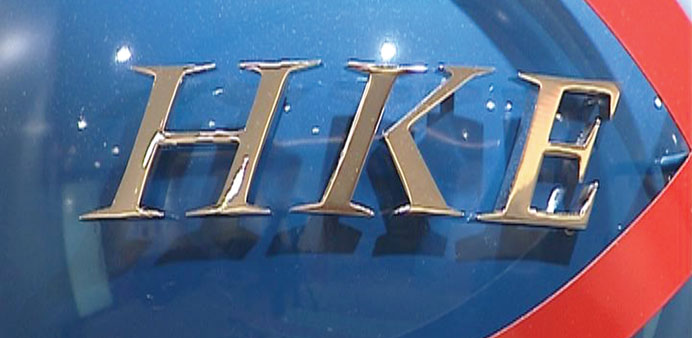HKEx, which has launched yuan-denominated and cash-settled contracts for copper, aluminium and zinc in December, seeks to become the commodity conduit between China and the rest of the world.
By Clyde Russell
Hong Kong
Imagine a world where global investors can access Chinese commodities markets through established global exchanges and Chinese investors can trade through their local bourses.
It’s more than just an attractive proposition, it’s the great hope for finally integrating the world’s largest commodity producer, consumer and importer with the rest of the world.
It’s also the prize being sought by Charles Li, the chief executive of Hong Kong Exchanges and Clearing (HKEx), which bought the venerable London Metal Exchange (LME).
But there is a long way to travel before the dream becomes a reality, and there is always the danger that the market will have moved on by the time HKEx manages to pull something together.
There are two main challenges are to firstly to get everybody from regulators to Chinese exchanges to government leaders to market players on board, and secondly to get the technical aspects to forging such links right first time.
Getting the “plumbing” right may be the easier challenge, given HKEx already has some experience in the field, with its Shanghai-Hong Kong Stock Connect, which allows investors to use their home bourse to buy shares on the other.
This is particularly attractive for global investors not big enough to justify the costs and risks involved in establishing a legal entity in China in order to be allowed to trade there.
It also allows some Chinese investors to access shares in Hong Kong, although less sophisticated (or wealthy) retail investors from the mainland are excluded.
But replicating the stock connect project in commodities means getting agreements with exchanges such as the Dalian Commodity Exchange and the Shanghai Futures Exchange.
Dalian is home to the hugely successful iron ore contract, while Shanghai’s rebar contract has become a leading benchmark for the steel industry. Whether these exchanges are keen to do a deal with HKEx remains to be seen, and their leaders were being very cautious at the LME Week Asia forum in Hong Kong on May 20.
HKEx’s Li presents an interesting contrast. When speaking at the forum in the morning in English, his remarks were upbeat and perhaps reminiscent of the “can-do” mantra personified by stereotypical US executives.
But when hosting a panel discussion in the afternoon with the chairmen of the Dalian and Zhengzhou commodity exchanges, as well as the chairman of the China Futures Association, Li was more considered and cautious, just like his guests.
While this can be simply viewed as good sense from Li to tailor his message to his audience, it does show the scale of the challenge HKEx is facing as it seeks to become the commodity conduit between China and the rest of the world.
While the aim of opening up China in both directions is worthy, the likelihood is that Li and the HKEx are aiming to capture transaction and other fees from the trillions of dollars of Chinese money currently locked up at home.
There are limited avenues for Chinese investors to access overseas markets and if the HKEx can get it right it would be able to channel Chinese domestic capital flows into international markets.
The HKEx launched yuan-denominated, cash-settled contracts for copper, aluminium and zinc in December, known as “minis” as they are smaller-sized mimics of LME contracts, in a bid to attract mainland investors.
While it’s early days, the contracts have still to gain sufficient liquidity to make them a major force, but if instruments like them could be traded through Chinese exchanges, they may well take off as it would give many Chinese investors access to contracts that look and feel like LME instruments.
However, there are also questions as to how far the Chinese authorities are prepared to go in relaxing capital controls on locals, and how convertible the yuan will become in the next few years.
Complete relaxation of capital controls and a fully convertible currency would possibly render the HKEx’s plans irrelevant, so in some ways Li probably is hoping for a more limited opening up by China, at least until he can get his commodities connect system up and running, and, more importantly, accepted and patronised by investors.
Li did acknowledge that the plans for a commodity connect system between HKEx and Chinese commodity exchanges are in their infancy, and appear not to have progressed too much since first mooted by Li in 2013.
In some ways the commodity plans seem a third-order issue for HKEx, which has spent much of the time since buying the LME in December 2012 attempting to fix issues around metals warehousing.
Even if HKEx does ramp up the effort in its commodity plans, it’s likely several years before they can be up and running.
Clyde Russell is a Reuters columnist. The views expressed are his own.

